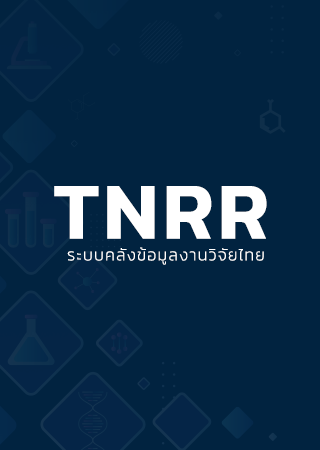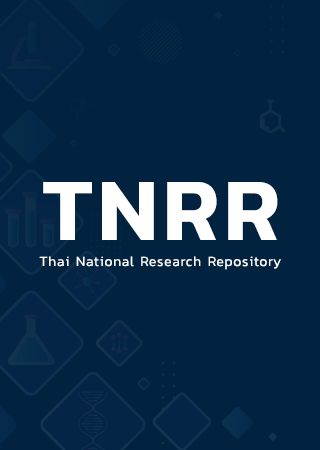Description
โครงการศึกษาวิจัย เรื่อง แนวทางการพัฒนาการบริหารแบบมีส่วนร่วมของภาคีเครือข่ายดูแลผู้สูงอายุในชุมชนเพื่อการยกระดับการรับมือสถานการณ์ภัยพิบัติ เขตจังหวัดภาคเหนือตอนบน สำนักงานส่งเสริมและสนับสนุนวิชาการ 9 กระทรวงการพัฒนาสังคมและความมั่นคงของมนุษย์ ได้รับงบประมาณสนับสนุนการทำวิจัยจาก กองทุนส่งเสริมวิทยาศาสตร์ วิจัยและนวัตกรรม (กองทุนส่งเสริม ววน.) สำนักงานคณะกรรมการส่งเสริมวิทยาศาสตร์ วิจัยและนวัตกรรม (สกสว.) กระทรวงการ อุดมศึกษา วิทยาศาสตร์ วิจัยและนวัตกรรม (อว.) จำนวน 600,000.- บาท โดยมีวัตถุประสงค์เพื่อศึกษาสภาพการณ์การบริหารแบบมีส่วนร่วมของภาคีเครือข่ายดูแลผู้สูงอายุในชุมชนในการรับมือสถานการณ์ภัยพิบัติ เพื่อศึกษาปัจจัยที่มีผลต่อการบริหารแบบมีส่วนร่วมของภาคีเครือข่ายดูแลผู้สูงอายุในชุมชนในการรับมือสถานการณ์ภัยพิบัติ และเพื่อเสนอแนวทางการพัฒนาการบริหารแบบมีส่วนร่วมของภาคีเครือข่ายดูแลผู้สูงอายุในชุมชนเพื่อการยกระดับการรับมือสถานการณ์ภัยพิบัติ ในพื้นที่ 8 จังหวัดภาคเหนือตอนบน ได้แก่ จังหวัดเชียงใหม่ ลำพูน ลำปาง แม่ฮ่องสอน เชียงราย พะเยา แพร่ และจังหวัดน่าน คณะผู้วิจัย ได้ดำเนินการคัดเลือกพื้นที่ศึกษาวิจัยแบบเฉพาะเจาะจง ซึ่งพิจารณาจากพื้นที่ๆประสบภัยพิบัติบ่อยครั้ง ได้แก่ เทศบาลตำบลปิงโค้ง อำเภอเชียงดาว จังหวัดเชียงใหม่ องค์การบริหารส่วนตำบลเวียงแก้ว ตำบลแม่ตืน อำเภอลี้ จังหวัดลำพูน เทศบาลตำบลวังเหนือ อำเภอวังเหนือ จังหวัดลำปาง องค์การบริหารส่วนตำบลแม่ฮี้ อำเภอปาย จังหวัดแม่ฮ่องสอน องค์การบริหารส่วนตำบลสันกลาง อำเภอพาน จังหวัดเชียงราย เทศบาลตำบลบ้านถ้ำ อำเภอดอกคำใต้ จังหวัดพะเยา องค์การบริหารส่วนตำบลน้ำเลา อำเภอร้องกวาง จังหวัดแพร่ และองค์การบริหารส่วนตำบลน้ำมวบ อำเภอเวียงสา จังหวัดน่าน โดยใช้ระเบียบวิธีวิจัยเชิงคุณภาพในลักษณะของการวิจัยเชิงปฏิบัติการอย่างมีส่วนร่วม จากผลการศึกษาพบว่า ปัญหาภัยพิบัติที่ประสบมากที่สุดจำแนกออกเป็น 2 กลุ่ม ได้แก่ ปัญหาไฟป่าหมอกควัน และปัญหาน้ำป่าไหลหลาก โดยมีองค์ประกอบเป็นปัจจัย มีผลต่อการบริหารแบบมีส่วนร่วมของภาคีเครือข่ายดูแลผู้สูงอายุในชุมชนเพื่อการรับมือสถานการณ์ภัยพิบัติทั้ง 2 กลุ่มภัยพิบัติ ได้แก่ ปัจจัยส่งเสริมการบริหารของภาคีเครือข่ายการดูแลผู้สูงอายุในชุมชนเพื่อการรับมือสถานการณ์ภัยพิบัติ จำนวน 35 ปัจจัย โดยสามารถจำแนกออกเป็นปัจจัยส่งเสริมก่อนเกิดภัยพิบัติ 21 ปัจจัย ปัจจัยส่งเสริมขณะเกิดภัยพิบัติ 11 ปัจจัย ปัจจัยส่งเสริมหลังเกิดภัยพิบัติ 3 ปัจจัย และปัจจัยอุปสรรคการบริหารของภาคีเครือข่ายการดูแลผู้สูงอายุในชุมชนเพื่อการรับมือสถานการณ์ภัยพิบัติ จำนวน 3 ปัจจัย และจากการศึกษาวิจัยยังพบว่า การยกระดับการรับมือสถานการณ์ภัยพิบัติจำเป็นต้องนำหลักการบริหาร 4M’s 7S’s การบริหารจัดการภายใต้ทักษะกระบวนการทั้ง 7 ประการ (POSDCoRB) การบริหารความเสี่ยง (Risk management) และการจัดการแบบมีส่วนร่วมของภาคีเครือข่าย ภาครัฐ ภาคเอกชน ภาคประชาสังคม อาสาสมัคร มูลนิธิ ฯลฯ ตามหลักการ 4 ขั้นตอน ได้แก่ 1) การมีส่วนร่วมในการกำหนดเป้าหมาย 2) การมีส่วนร่วมในการวางแผนปฏิบัติ 3) การมีส่วนร่วมในการนำแผนไปปฏิบัติ และ 4) การมีส่วนร่วมในการทบทวนประเมินผล<br><br>The objectives of this research were (i) to study the situation of participatory management of the elderly care network partners in the community in dealing with disaster situations, (ii) to study the factors affecting the participatory management of the elderly care network partners in the community in dealing with disaster situations, and (iii) to propose guidelines for the development of participatory management of the elderly care network partners in the community for raising the level of disaster response in eight provinces in the upper north namely Chiang Mai Lamphun Lampang Mae Hong Son Chiang Rai Phayao Phrae and Nan. The results of the study found that the most-disaster problems are divided into two groups, including the forest fires and smog, and the flash floods. The factors affecting the participatory management of the elderly care network partners in the community to cope with both above types of disaster situations, 35 factors in total, as follows. The first factor is to promote the participatory management, which can be classified into three groups: 21 pre-disaster promotion factors, 11 disaster promotion factors at that moment, and 3 post-disaster promotion factors. The second factors are obstacles to the management, which have 3 factors. The findings of the study are as follows. Improving disaster response requires using the principles of the 4Ms, 7Ss, POSDCoRB, and risk management principles by integrating network partners participatorily, consisting of the government, private sector, the civil society, volunteers, related foundations, etc., It can be divided into four steps of the participation: (i) setting the goal, (ii) designing the action plan, (iii) implementing the plan of the plan, and (iv) reviewing the evaluation. The main recommendation of the study is the government or government agencies should encourage each local government organization to develop participatory management of elderly care network partners in the community in order to enhance disaster response to the condition of the disaster, which may occur in the future more and more due to the global climate change. This is to be on the lookout for and be prepared to deal with such disasters, especially when occurs or expands the severity of problems in each area.
Date of Publication :
02/2023
Publisher :
สำนักงานปลัดกระทรวงการพัฒนาสังคมและความมั่นคงของมนุษย์
Category :
รายงานการวิจัย
Total page :
77012 pages
People Who Read This Also Read


